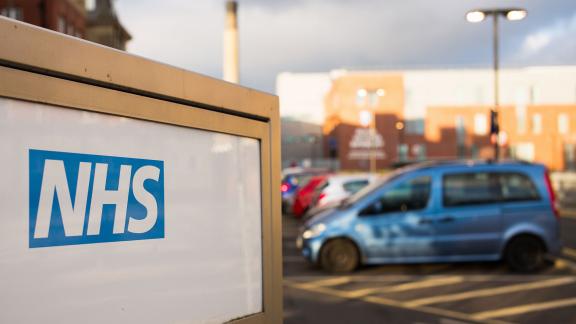How social prescribing has adapted during the COVID-19 pandemic

Social prescribing is adapting to meet people’s needs. Christiana Melam, chief executive of the National Association of Link Workers, and James Sanderson, chief executive of the new National Academy for Social Prescribing, discuss the challenges and opportunities for social prescribing.
COVID-19 has highlighted the need to build people’s personal resilience and capability. It has shone a light on the need for connectiveness to a community and the importance of placing social and non-medical needs alongside medical needs. We know that health is affected by a wide range of things, and access to food, housing and social connections have been brought sharply into focus over the past few months.
Pre COVID-19, a fifth of GP appointments were for non-medical needs. Previously, there wasn’t a clear mechanism for how we deal with these issues, but social prescribing offers an opportunity to support people’s wider needs.
“If anyone were in any doubt about the value and importance of social prescribing and the vital role our link workers play, then the exemplary way they have stepped up during the COVID-19 pandemic should settle that once and for all!
"I have been overwhelmed by stories of how link workers have taken on vital responsibilities in supporting some of our most vulnerable shielded patients, how they have acted as superb community connectors - ensuring social resources are directed at areas of greatest need, and how they have demonstrated beautifully that social distancing does not necessarily mean social isolation.” Professor Helen Stokes-Lampard, Chair, National Academy for Social Prescribing
Social prescribing has had to adapt during this period, switching the focus away from physical activities but continuing to work alongside people to find out what matters to them. Social prescribers have been providing practical support to people, organising the picking up of prescriptions and shopping, as well as looking at innovative ways to connect them to online groups and community support in order to provide a variety of activities aimed at supporting mental and physical health.
Opportunities
There has been a huge societal response to COVID-19, with communities coming together to support people and a recognition of the importance of social connection. We have seen people doing PE with Joe Wicks, joining online choirs, engaging in quizzes and watching online theatre. Closely allied to this is the need for social prescribing, such as the isolated man with a passion for western novels for whom a social prescriber was able to make a call-out to the local community, which then shared books with him.
This, then, is an opportunity to capture the societal response and to raise the profile and role of social prescribing and link workers in communities. It is time to realise that GPs, individuals and communities all contribute to collective community assets and social prescribing offers another mechanism for GPs to unlock these.
The creation of 4,500 link workers as part of the NHS Long Term Plan provides an opportunity to support GPs over the coming months and years. They will be needed too, as the whole of society seeks to recover from the effects of this pandemic, with a plan needed to recognise the economic pressures, the development of long-term conditions due to lock down and the mental health impact.
Social prescribing offers an opportunity to help patients and GPs navigate the options available, saving GPs time and encouraging people to use the GP less for non-medical needs and building people’s personal resilience and ability to take control of their own health and wellbeing.
Challenges
COVID-19 has had a massive impact on people’s lives and, far from being a great leveller, the data shows that the impact is not evenly spread. Office for National Statistics figures show that deprived areas are likely to be more affected by COVID-19.
We know that to address non-medical conditions, it isn’t as simple as telling people what to do but providing support and working with people. Helping to identify and remove barriers enables people to focus on behaviour change, but that can’t happen until the barriers have been removed. There is no point prescribing Parkrun to someone who can’t afford trainers or who has no access to childcare. Until those barriers are overcome, they can’t participate.
There is also a funding challenge to consider. The voluntary, community and social enterprise sector which runs many of the activities prescribed have been financially affected by COVID-19 and may struggle to run the same types of activities in the future. Despite these concerns, social prescribing often focuses on kindness and people coming together to solve their problems and, as we’ve seen through the innovative responses to COVID-19, communities tend to find a way.
The future
In years gone by, social prescribing sat on the periphery, but now it is front and centre. As we emerge from COVID-19 into what looks like a very different world, the necessity of social prescribing to reach people who might not be reached by other services and to support people’s psychological and social needs will be critical.
Christiana Melam is chief executive of the National Association of Link Workers. Follow her on Twitter @Christy_Melam. James Sanderson is chief executive of the National Academy for Social Prescribing. Follow him on Twitter @JamesCSanderson.



